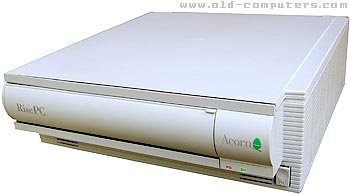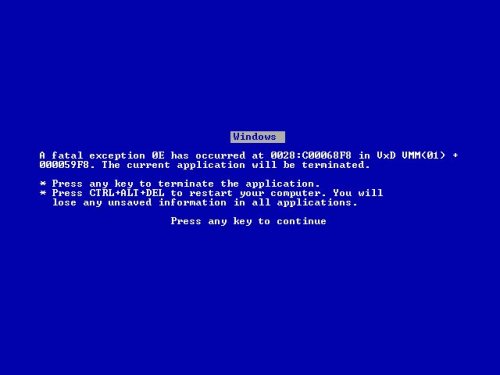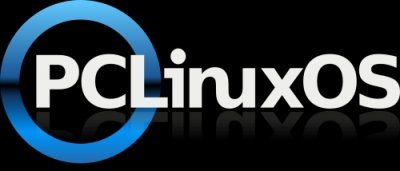The Newbie's Linux Adventure...
by iSE
Originally this started as a welcoming post in a forum, but I have been asked to expand on it and share with others my adventure into Linux.

This is applicable to everyone, from people new to Linux, right through to those who've grown old with PCLOS and see it as a family member. It is indeed my hope that this may help developers to understand how a "newbie" feels, and to help new users to avoid some of the issues I had. We'll delve into how I became interested in computers and see how that progressed into falling in love with the brainchild of a man who likes to wear a Mandrake hat.
At the age of around 7 (July 1993), I attended a new primary school in Manchester (UK equivalent of Elementary School) which had 1 computer. It was an Acorn Archimedes A5000 and I became very familiar with this machine to become the only one (including the staff) who could fix and work it properly. So when we got the new Acorn RISC PC 600 (in 1994), it was up to me to learn how it worked. This meant being taught everything about it by an old gentleman from Acorn. From then on, every teacher and every pupil knew that I was the one to ask anything about it. So naturally I got a lot of experience - at least with the RISC OS which was quoted to be "tested to destruction every day by primary school children."

My love for computers began and it wasn't anything to do with Windows, Microsoft, or Apple, it was a small UK company called Acorn, who are probably now long forgotten.
So, its 1997 and after 4 years of being constantly meithered (bothered - ed.) by people to stop whatever I was doing because someone desperately needed one thing or another with that flaming computer! ... I passed my 11+, and the entrance exam to be enrolled at Altrincham Grammar School for Boys (for those not in the UK, all children of age 10/11 back then were made to sit an exam to determine whether they went to a grammar school or high school (pass/fail)). For my achievements and as a joint Christmas present for me and my brother, my parents bought us our first home PC. The OS was Windows 95 and was powered by an Intel Pentium with speeds up to 90MHz, having storage of 512Mb (which then got upgraded to 1, then 2GB). This allowed me to go a lot more in-depth with my interest in this new technology and once my father obtained a copy of Windows 98, whose job do you think it was to get it working?
The years went by and at around the age of 14 (now 2000) I started to stay behind after school and lend a hand to the IT Technician, a young man called James. Sometimes he or I would be busy and so I couldn't stay, but more often than not I was able to actually take apart the computers and replace motherboards, hard drives, anything, and everything. Privileged as I was at such a young age to be able to change a BNC connector, or even repair a broken server, I was only using Windows since I didn't know there was anything different. All the networking was based on Novell but a lot of the older computers used Windows 3.1.1 and the newer ones had 98SE, if they were lucky.
Myself, and several friends who were all very good at using computers (and certainly knew their way around Linux), started our own little hacking club called The Reckless Thieves (from which I keep my alias Internal System Error) and it was through this that I was first introduced to the existence of Linux.

After trying to play with Red Hat (downloaded on a 56K modem) and getting extremely frustrated trying to get it work (when I didn't really need a new OS anyway), I decided to give it a rest. By that point Windows XP had come along and I was fairly satisfied with how that worked. To this day I still stand by that XP (with Service Pack 1) was/is actually a good OS, which isn't surprising when you learn that it wasn't coded by Microsoft. Yes it has security issues, but so would Linux or Macs if as many people used those. It did what I needed and after years of the blue screen I was happy.
Service Pack 2 was awful, that was when the telltale signs of shaft the customer really started to show with me. Everything from the new security control panel, through the forced Windows Genuine Advantage scheme, to the way it limited Half-Open connections causing problems with many P2P programs. Having had a hobby in creating music on my PC for a very long time now, it became immensely difficult to get the mp3's of my own music, which I created, to friends and family over the Internet. When people asked me to send them my latest tune over MSN, for instance, I used to have to tell them not to click on 'open' because it would be instantly deleted. Instead, they'd have to go into My Received Files, copy it to another location, and then open it.
So, it's now coming to the end of 2006, I've tried the Vista Beta's and RC's, and now I decide maybe I should give Linux another go. Microsoft had the potential to make a truly amazing OS with Vista. If they'd actually done what they said they were going to and not done a trumped up XP SP2 with a facelift, they would have given Linux and Macintosh true competition. Instead, the only reason people will buy Vista is because they feel they have to, not because they want to. If they only want something that looks pretty they will go for Mac OSX. For most people, they don't have the choice, they want to play games and work programs which only run on Windows.
Ubuntu, Kubuntu, Debian, Mandriva, Fedora Core, Gentoo, Sabayan, Slackware, MEPIS, and others totalling around 20 I've now tried. Having a wireless network, I managed to get on the internet with very few of those, which made me reboot into windows and try for another. I was determined not to use Vista because I was sick of the ever increasing amount of DRM built into the OS. I did seem to have a good result with Ubuntu and wanted to try out Beryl as soon as I heard of it. My old nVidia card had trouble with Ubuntu and the proprietary drivers so I carried on my search. Vista was released, I gave in and bought a copy of Ultimate. Anybody considering paying that ridiculous amount for something so you can play games every now and then, or use a Windows program - don't. It really is not worth it. Microsoft actually had the cheek to put my OS in limited mode, accusing me of using a pirated copy. After long deliberation with the online store I purchased it from and a rather nice man at MS whom I was a bit harsh on at first, the matter was settled after about a week.
During that week (in March 2007), I read on DistroWatch about an OS which was still in the making (TR1) but was soon to release a final edition which sported the slogan "radically simple". The screenshots looked very attractive indeed and I couldn't wait for the final to come out so I could try it. More frustration went by and I finally decided to install TR2 when it was released.

They said it was a Test Release so I expected bugs, problems, etc. This OS worked better than any of the other "stable" releases of other OS's I had experienced and I decided I'd found my match. PCLinuxOS, you are the OS I always dreamed of because you work so well! I know you're having problems with the site and such at the moment, but that will all pass and when you have TR4, no doubt still calling such a stable piece of software a test release, I will be waiting to see what the final will be like if TR2 was considered unstable. I don't mind having to tinker under the bonnet (hood for the North-Americans) every now and then; in fact, I rather enjoy it. But what you give me is the choice as to whether I want to, or not.
Thank you so much to Texstar for starting PCLOS in the first place, and to the other developers who all do such a good job of getting all the right components in the state they should be. When the forum is back up, let us all hope that it will be as well organised and open as the OS is.